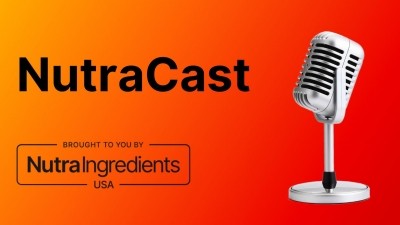Study questions omega-3 supplement labeling, calls for increased regulation

Scientists from the University of Texas Southwestern Medical Center assessed claims (qualified health claims and structure/function claims) on almost 3,000 fish oil supplements and found that almost 75% of them were making claims, predominantly structure/function claims.
While there are FDA-approved qualified health claims for omega-3s for coronary heart disease (CHD) and blood pressure (BP), fewer than 400 products used these claims on their labels.
The main structure/function claims used were associated with heart health, brain health, and joint health.
From this cross-sectional, the researchers concluded: “Results of this cross-sectional study suggest that the majority of fish oil supplement labels make health claims, usually in the form of structure/function claims, that imply a health benefit across a variety of organ systems despite a lack of trial data showing efficacy.
“Increasing regulation of dietary supplement labeling may be needed to prevent consumer misinformation.”
Permitted by the regulation
Commenting independently on the study’s findings, Harry Rice, PhD, VP of Regulatory and Scientific Affairs for GOED, told NutraIngredients-USA the article is “fraught with inaccuracies and never should have made it through the peer review process.
“Despite the authors’ attempts to undermine the omega-3 supplement industry by concluding that the use of structure/function claims in the United States leads to consumer misinformation, GOED views the information contained in the article as support for how responsible our industry is in its marketing,” said Dr Rice. “That is, the wording of the vast majority of example structure/function claims are permitted by the regulation.”
Steve Mister, President and CEO of the Council for Responsible Nutrition, commented: "The call for 'additional regulation of dietary supplement labeling' is both predictable and unsupported by the research. Consumers should always discuss their supplement regimens with their healthcare providers, but there is nothing in this study that should dissuade consumers to change their omega-3 regimens for better health. Ultimately, this study demonstrates an amazing lack of understanding of the many different reasons why consumers choose to use supplements for better health."
Structure/function claims
A structure/function claim is defined in the regulations as a claim that “describes the role of a nutrient or dietary ingredient intended to affect the structure or function in humans” or “characterizes the documented mechanism by which a nutrient or dietary ingredient acts to maintain such structure or function”.
Under the regulations, the company making the claim must have “substantiation that the statement is truthful and not misleading”.
The Dietary Supplement Health and Education Act of 1994 (DSHEA) also states that dietary supplements making structure/function claims be accompanied by the following standard disclaimer: “This statement has not been evaluated by the Food and Drug Administration. This product is not intended to diagnose, treat, cure, or prevent any disease.”
Study details
The new study started by identifying 23,247 potential fish oil supplements in the Office of Dietary Supplements’ Dietary Supplements Label Database (DSLD), and then excluded 20,428 of these that turned out to that were not fish oil after all, were multivitamins with EPA and DHA, prenatal, or pediatric supplements.
Seventy-four percent of the 2,819 products assessed used some type of health claim on the label, the majority of these being structure/function claims.
In terms of the doses used in the formulations, analysis of 255 unique supplement labels showed that 91% contained both EPA and DHA. The median doses of EPA and DHA in the formulations were 340 mg of EPA and 270 mg of DHA. Over 9% of the supplements contained a combined EPA+DHA dose of 2, 000 mg or more, said the researchers.
“Only a small minority of supplements contained 2g per day of combination EPA + DHA, which may be recommended for triglyceride lowering but can also increase risk of atrial fibrillation,” wrote the researchers.
It should be noted that the 2015–2020 Dietary Guidelines for Americans recommend 8 oz of fish per week, which equivalent to about 250 mg EPA + DHA per day, while the American Heart Association recommends 2 servings of “oily” fish per week to reduce the risk of heart disease and stroke risk, equivalent to about 500 mg EPA + DHA per day. GOED recommendations for the general healthy adult population are also 500 mg of EPA + DHA per day (with additional recommendations for specific groups like pregnant women).
The JAMA Cardiology article can be read for FREE HERE.
Omega-3 market
Whether derived from fish, krill, algae, or other sources, omega-3s remain one of the dietary supplement industry’s big fish.
As outlined in an article by Ellen Schutt, GOED’s executive director, the global market for EPA and DHA omega-3 was a $1.58bn market in 2021, with volume at 115,758 metric tons. Dietary supplements made up the largest share of the market, accounting for 58% of the volume at 67,000 metric tons.
Within supplements, the US market, which grew 4% in 2021, continues to be the largest market. Demand remained strong in 2021 and into 2022, with algae oil products gaining ground due to increased consumer interest and more capacity of algal oils coming onstream.
Source: JAMA Cardiology
Published online ahead of print, doi:10.1001/jamacardio.2023.2424
“Health Claims and Doses of Fish Oil Supplements in the US”
Authors: J.N. Assadourian et al.
















